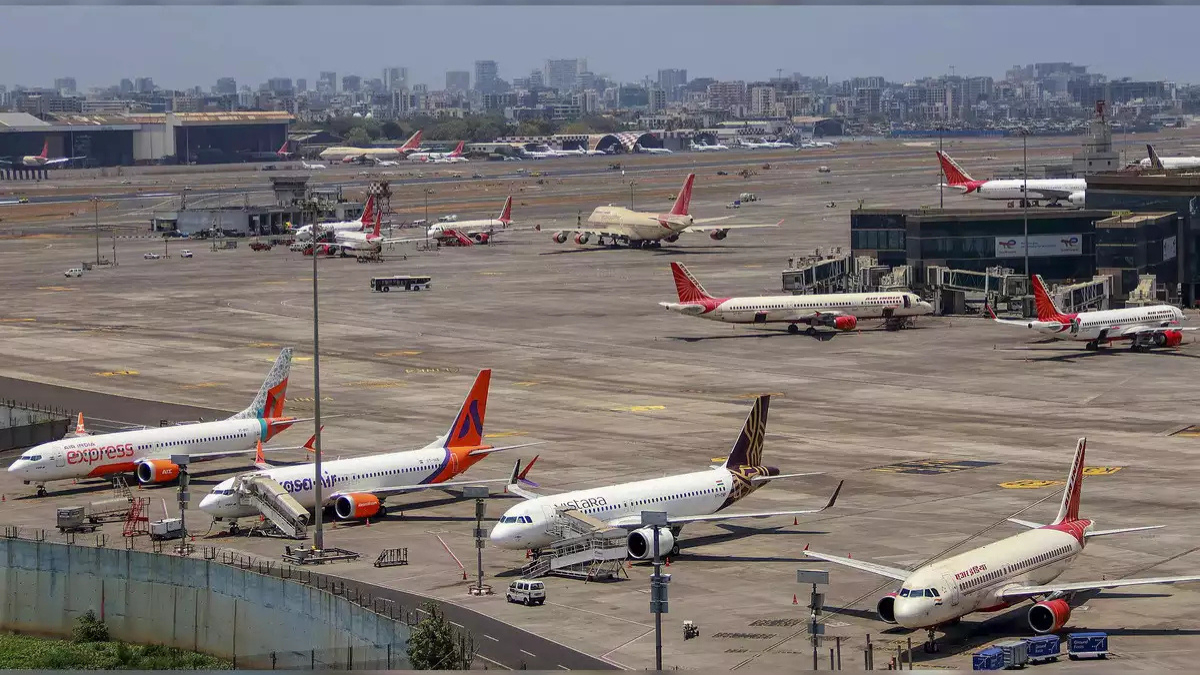As tensions between India and Pakistan escalate, particularly following airstrikes targeting Jammu and military facilities near the western border, major Indian airlines have been forced to implement stringent measures to ensure both passenger safety and smooth operations.
Air India and Akasa Air have issued urgent advisories to their passengers, advising them to arrive at airports at least three hours before their scheduled departure times. These measures come in response to enhanced security protocols set forth by the Bureau of Civil Aviation Security (BCAS), ensuring a smoother check-in process amidst rising risks. In an official statement, Air India reiterated the importance of adhering to these security guidelines, particularly emphasising the closure of check-in counters 75 minutes before departure. The airline cautioned passengers that longer wait times could be expected due to the intensified checks. “Given the heightened security, all passengers across the country are strongly encouraged to arrive early at their respective airports,” Air India’s statement on social media read. Akasa Air, in a similar notice, underscored the need for passengers to comply with stringent security measures, including mandatory secondary checks and restricted baggage allowances, in addition to an urgent call for passengers to use online check-in facilities.
This heightened security comes as India successfully intercepted missile and drone attacks launched from Pakistan, which caused widespread blackouts and emergency alerts across Jammu & Kashmir, Punjab, and Rajasthan. In light of the security concerns, the aviation sector has seen significant disruption, with 27 airports across northern India, including major hubs like Srinagar, Jammu, Leh, and Amritsar, remaining closed until May 10. These closures have led to widespread cancellations, with over 430 domestic flights grounded on Thursday alone. Following the previous day’s cancellation of 300-plus flights, the ripple effect on the country’s air travel system has been considerable, stretching the capacities of remaining operational airports, including those in Delhi and Dehradun. The re-routing of flights, as well as airport delays, have sparked high call volumes at customer service centers, with passengers grappling to make sense of the operational confusion. Airlines have expressed their support for India’s armed forces while remaining committed to helping manage the operational challenges that have arisen. Despite the disruptions, industry officials have been working tirelessly to ensure that the safety and security of passengers remain the highest priority.
For many passengers, the current travel scenario has introduced added layers of stress and inconvenience, as families and business travellers are forced to adjust to new travel advisories. Though these measures are crucial for national security, the pressure on the aviation sector highlights broader challenges in managing air traffic during periods of geopolitical instability. Airlines, passengers, and aviation authorities are continuing to navigate these turbulent skies, all the while striving to maintain the highest levels of efficiency and safety amidst unprecedented circumstances.
Also Read :Mumbai becomes emergency aerial corridor as airlines avoid northern war-sensitive routes


